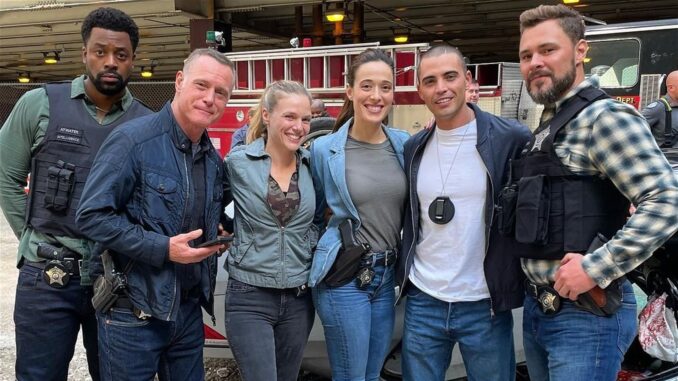
The Grey Line: Justice vs. The Law in Chicago P.D. Season 13
The wail of sirens, a constant serenade to the city’s underbelly, cuts through the opening scene of Chicago P.D. Season 13. The air hangs thick with tension, punctuated by the staccato bursts of gunfire. This isn’t just another bust; this is a climactic confrontation, a boiling point reached after seasons of navigating a treacherous moral landscape. It’s a battle, not just against criminals, but against the very definition of justice, a fight where the law itself seems to be an obstacle. Season 13 throws us headfirst into the murky grey area where the pursuit of what’s right clashes head-on with the rigid confines of the legal system, leaving the Intelligence Unit grappling with the question: How far is too far to achieve justice?
The opening sequence doesn’t shy away from illustrating this dilemma. We find the team, led by the ever-determined, and arguably increasingly morally compromised, Sergeant Hank Voight, embroiled in a takedown of a powerful drug cartel. But this isn’t a straightforward operation. There are whispers of evidence tampering, shadowed glances between team members, and Voight’s steely gaze holding a hint of something darker than usual. The success of the operation is undeniable, the streets arguably safer, but the means by which it was achieved remain shrouded in ambiguity.
This ambiguity underscores the core theme of the season. Justice, in the eyes of the law, is often procedural. Evidence must be obtained legally, suspects afforded their rights, and the entire process meticulously documented. However, the streets of Chicago are rarely so orderly. Voight, a seasoned veteran hardened by years of witnessing the city’s horrors, believes that sometimes, the ends justify the means. He sees the bureaucratic red tape and loopholes that allow criminals to walk free, and he’s willing to bend, even break, the rules to ensure they face consequences.
This philosophy is tested throughout the opening episodes. We see cases where following the letter of the law would allow dangerous individuals to return to the streets, jeopardizing the community. Voight’s instinct is to take matters into his own hands, to shortcut the system and deliver his own brand of justice. He leans heavily on his network of informants, navigates the city’s underbelly with ruthless efficiency, and isn’t afraid to push the boundaries of interrogation.
However, the internal conflict within the Intelligence Unit is palpable. Detective Hailey Upton, once Voight’s protégé, grapples with the ethical implications of his methods. Haunted by her own past mistakes and the consequences of unchecked power, she questions whether Voight’s actions are truly serving justice or simply perpetuating a cycle of violence and corruption. This internal discord creates a fascinating dynamic within the team, forcing each member to confront their own moral compass.
Further complicating matters is the external scrutiny they face. The pressure from the brass is mounting, with Internal Affairs sniffing around, suspicious of Voight’s increasingly unconventional tactics. The line between protecting the city and crossing the line into outright vigilantism blurs with each case. The opening sequence sets the stage for a season where the team must not only fight criminals but also defend their actions, and their definition of justice, against the very system they are sworn to uphold.
The battle between justice and the law in Chicago P.D. Season 13 is not a simple black and white conflict. It is a nuanced exploration of the compromises made in the name of safety, the potential for abuse of power, and the ever-present tension between idealism and pragmatism in law enforcement. The opening episodes lay the foundation for a season that promises to challenge viewers to question their own understanding of justice, and to consider the heavy price paid for maintaining order in a city teetering on the edge. The sirens continue to wail, a constant reminder of the grey line that separates the upholders of the law from those who believe they are above it, a line that the Intelligence Unit must constantly navigate in their relentless pursuit of what they believe is right.
